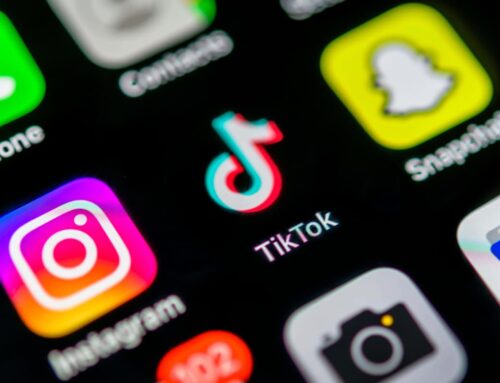Cementing a New Future for Plastic Waste
July 24, 2025
Costa Rica – renowned for its rich biodiversity, abundant wildlife, and commitment to sustainability – still grapples with environmental challenges. While the country generates more than 95% of its electricity from renewable sources, it isn’t immune to the consequences of global pollution. The actions of the world beyond its borders continue to affect Costa Rica’s wildlife, communities, and coastlines.
One of the most pressing threats is plastic waste. According to the United Nations Environment Programme (UNEP), about half of all plastic produced is designed for single-use items like bags, straws, packaging, and water bottles. Each year, more than 11 million metric tons of plastic enter the ocean, and that figure is expected to nearly triple by 2040.
“Worldwide, 440 pounds of plastic enter the ocean every second,” said Mau Cortés, environmental documentarian and founder of EcoHeroes. His organization is tackling the crisis head-on by transforming ocean plastic into durable building materials, offering a creative solution with both environmental and social benefits.
Before EcoHeroes, Cortés started the Five Minute Beach Cleanup, a campaign encouraging beachgoers to collect trash for just five minutes. While it raised awareness, he found the impact was fleeting. “They really cheered up after doing it, but they were not coming again. So that was not a solution for the problem we’ve been facing.” Cortés instead wanted a scalable, lasting model: a traceable plastic offset service that allows individuals and businesses to fund the removal of ocean plastics, even if they never visit a beach.
Through EcoHeroes, Cortés developed a streamlined system: locals are paid to collect ocean-bound plastic, which is then sent to San José to be transformed into durable building blocks. Both businesses and individual consumers can participate by paying per pound to offset their plastic footprint, making it possible to clean beaches without ever setting foot on one. The model is simple, traceable, and designed to create long-term environmental and social impact.
“The core business of EcoHeroes is to get plastic out of the ocean, collected by people from coastal communities,” Cortés explained. “We’re paying locals double the market price even though it’s considered garbage.” By paying families fairly, the company aims to create steady employment and eventually salaried jobs for residents. A major upgrade for the same families who are used to sorting and cleaning only types one and two plastic, often for minimal pay. “We take all types of plastic, we pay well, and they are super grateful,” said Cortés.
Once collected, the plastic is shipped to a San José-based company, Pedregal, a partner that transforms all types of plastics into Resin8, a plastic sand additive used to replace about 10% of the natural sand in concrete blocks. The closed-loop solution has minimal environmental cost compared to traditional recycling.
Photos Courtesy of EcoHeroes
“We don’t need to thoroughly clean the plastics because what we’ve taken out of the beach is being captured in concrete,” Cortés said. “That’s another advantage – we’re not creating a water footprint in the recycling process.” Cortés expands on how their process is advantageous to traditional recycling, which often perpetuates single-use cycles. Instead, EcoHeroes offers a permanent solution: “We’re not converting a plastic bottle into another bottle that will go back to the same polluting system- we’re closing the loop.”
One of the most universal features of EcoHeroes is that anyone can support its endeavors, without ever stepping foot on a beach. The company’s website allows businesses and individuals to pay per pound of the plastic they would like to offset. This model is not only accessible to anyone but is designed to avoid greenwashing- a deceptive marketing practice where a company, organization, or product falsely presents itself as environmentally friendly in order to gain public approval or increase sales. “Traceability is key, and we believe transparency is the solution for this,” said Cortés. Each pound of plastic offset is tracked by a unique code that links back to the collector and location. Subscribers – businesses or individuals – can see exactly where their money went.
The goal isn’t just to grow EcoHeroes – it’s to replicate the model globally. “We’re creating jobs and cleaning the ocean in a very responsible, fair-trade way,” Cortés said. He’s currently piloting a new community recycling hub in Búchale, Costa Rica, where families will one day upcycle waste into valuable goods like furniture made from traceable ocean plastic. With interest from communities in Guatemala and Colombia, Cortez is building the blueprint for a new and improved plastic market.
Cortés believes the concept of a “plastic footprint” should be as mainstream as carbon emissions. “Plastic is a material causing a lot of damage, not only to the planet, but to our health,” he said. Each week, the average person unknowingly consumes about five grams of microplastics – the weight of a credit card. “We’re not even aware of it,” he added. “We’ve been told, ‘Don’t worry, recycle it.’ But recycling is not a real solution.” In Costa Rica, less than 4% of plastic waste is actually recycled.
Photos Courtesy of EcoHeroes
While EcoHeroes offers individuals a way to offset their plastic footprint, Cortés is clear about where the responsibility truly lies. “The most responsible actors are the businesses that are selling their products packed in plastic,” he said. Companies that profit from plastic packaging, he argues, should be accountable for the environmental damage their products create. Through EcoHeroes, they can offset the exact amount of plastic they produce each month, paying to remove that same weight in waste from the ocean.
“If companies aren’t offsetting their plastic, then we, as consumers, have to pay the price. But really, it should be the companies because they’re the ones creating the problem.” Until that shift happens, EcoHeroes gives individuals a chance to act, offering subscriptions that allow people to fund the cleanup of one or more pounds of plastic each month.
But offsetting isn’t the end goal – it’s a stepping stone. “We’re not promoting the use of plastic,” Cortés emphasized. “On the contrary, we try to tell people to reject single-use plastics at all times.” While some forms of plastic – like those used in medicine or sanitation – may be necessary, many everyday uses can be replaced with more sustainable alternatives. For Cortés, the real solution is to stop polluting in the first place. “The cleanest house isn’t the one you clean the most – it’s the one you pollute the least.”
Search
RECENT PRESS RELEASES
Related Post


